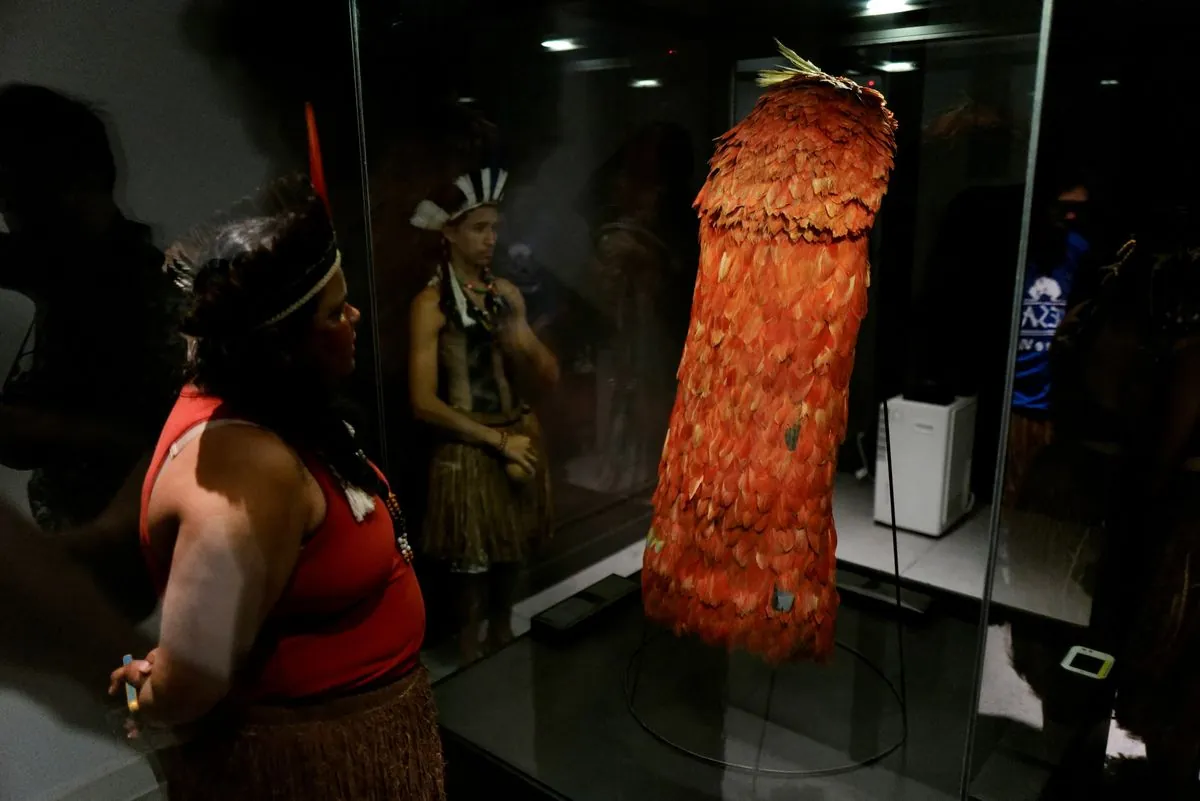In a historic event, a sacred Tupinambá feathered cloak has returned to Brazil after an absence of approximately 380 years. The artifact, crafted from scarlet ibis feathers, was officially transferred from Denmark's National Museum to its Brazilian counterpart in a ceremony held in Rio de Janeiro on September 12, 2024.
The return of the cloak marks a significant milestone in the ongoing global dialogue about the repatriation of cultural artifacts. This event is particularly noteworthy as it represents the first time an indigenous artifact of such importance has been returned to Brazil.
President Luiz Inácio Lula da Silva and Indigenous Peoples Minister Sonia Guajajara attended the ceremony at Brazil's National Museum, located in Boa Vista Park. The event highlighted the government's commitment to preserving indigenous heritage and addressing long-standing issues of cultural restitution.
The Tupinambá people, who traveled 28 hours from the northeastern state of Bahia, conducted rituals and prayers with the cloak, which they regard as a living ancestor rather than an inanimate object. This perspective underscores the deep cultural and spiritual significance of the artifact to the indigenous community.
The cloak's journey spans centuries of colonial history. Taken by the Dutch around 1644 during their brief occupation of northeastern Brazil, it eventually found its way to Denmark's National Museum, where it resided for 335 years. The decision to return the cloak was partly influenced by the devastating fire at Brazil's National Museum in 2018, which destroyed approximately 90% of its collection.
"In the process of colonization, he (the cloak) was taken away abruptly, violently, taking from the people what represented their greatest strength."
The return of the cloak is intertwined with broader discussions about indigenous rights in Brazil. The Tupinambá are among several groups seeking official recognition of their lands through a process known as demarcation. This context adds layers of significance to the cloak's homecoming, as it symbolizes not only cultural reclamation but also the ongoing struggle for land rights and self-determination.
The event in Rio de Janeiro is part of a global trend of museums reconsidering their roles in preserving and displaying cultural artifacts. From the Parthenon sculptures in the British Museum to African treasures in French institutions, the debate over repatriation continues to evolve.
As Brazil celebrates this momentous return, it also faces the challenge of balancing cultural preservation with the pressing needs of its indigenous communities. The cloak's homecoming serves as a powerful reminder of the importance of cultural heritage in maintaining identity and fostering understanding between peoples.
